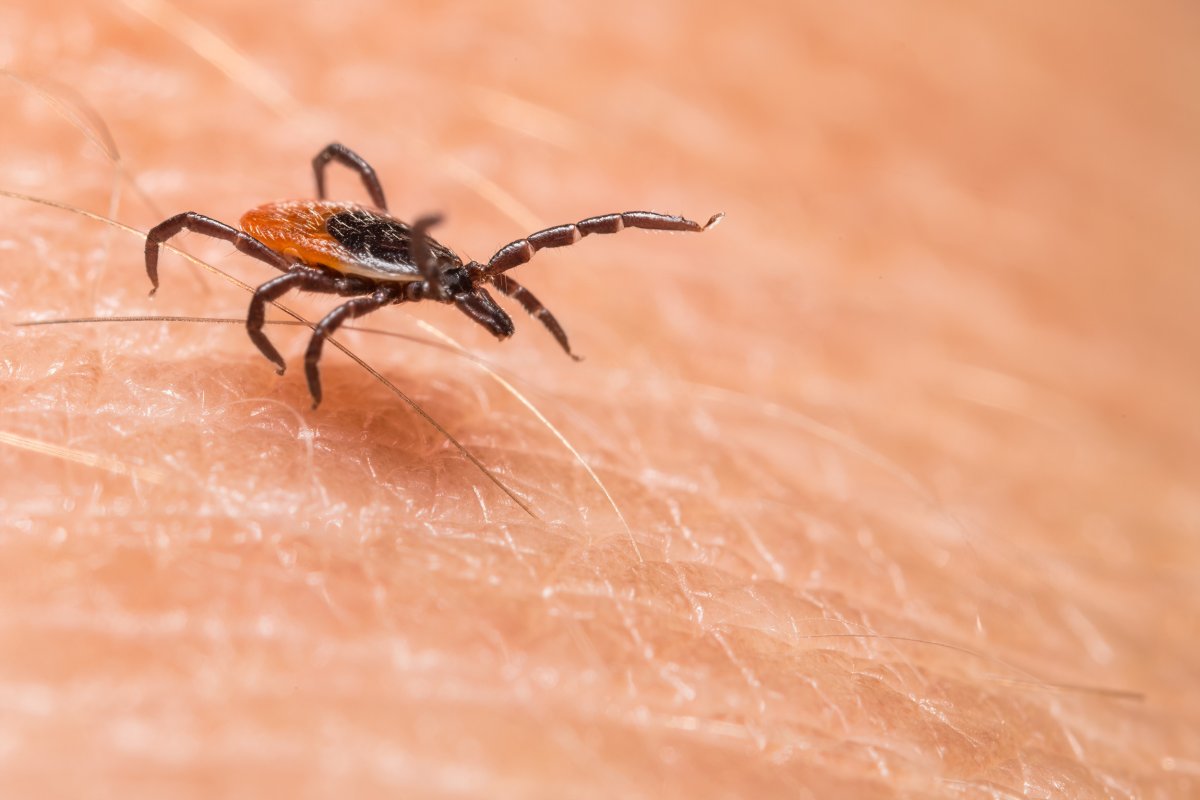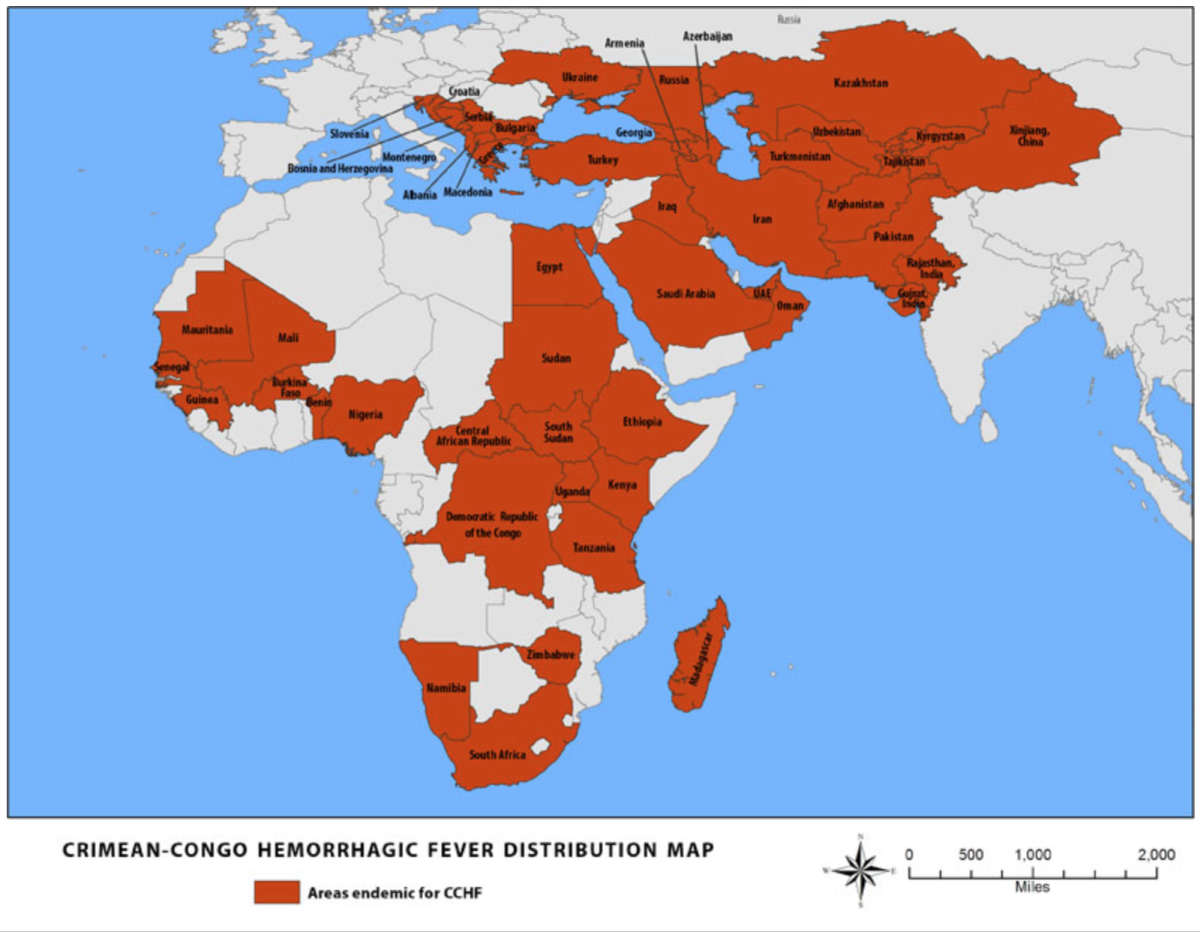A life-threatening viral disease has been slowly spreading to new countries, with locations across Europe, Africa and the Middle East recording new cases of the infection.
The disease, named Crimean-Congo hemorrhagic fever (CCHF), has seen recent outbreaks in Iraq and Namibia, and Pakistani health officials have reported two deaths.
The disease is also "highly likely" to reach the U.K., scientists warned the U.K. parliament's Science, Innovation and Technology Committee last Wednesday.

"Some tick-borne infections, so Crimean-Congo hemorrhagic fever, are highly likely to spread in the U.K. through our ticks at some point," James Wood, head of veterinary medicine at Cambridge University, said at the hearing.
CCHF is a viral disease caused by Nairovirus, spread via ticks, that has a fatality rate of between 10 and 40 percent, according to the World Health Organization (WHO). It is usually found in low levels across Africa, the Balkans, the Middle East and in Asia.
There have been no outbreaks in the U.S., according to a 2021 article on WebMD, a health information site.
Now, however, this disease may be expanding its usual territory and moving northwest towards countries like the U.K. and France, due to the effects of climate change. The U.K. has recorded three cases of CCHF since 2012, most recently last year, but they were all people who contracted the disease overseas.

"The ticks are moving up through Europe due to climate change, with longer and drier summers," Ali Mirazimi, a virologist at the Karolinska Institute in Sweden, told the Modern Diplomacy website in April.
Western European countries like Spain are already seeing cases of the disease, with deaths having been recorded over the past few years.
CCFH is one of nine "priority diseases" ranked by the WHO as posing the greatest public health risk due to their epidemic potential. The virus is spread by ixodid ticks, but can also be transmitted by contact with infectious blood or body fluids from other humans, according to the Centers for Disease Control and Prevention (CDC).
Symptoms of the virus can include a headache, high fever, back pain, joint pain, stomach pain, and vomiting, and in severe cases, jaundice, changes in mood and sensory perception, and severe hemorrhaging.

According to the WHO, Iraq was gripped by an outbreak of the virus last year, with 212 cases of the disease recorded between January 1 and May 22, 2022—169 of them reported in April and May alone—of which there were 27 deaths.
Nearly 100 further cases and at least 13 deaths from the disease have been reported in Iraq this year, French news agency Agence France-Presse reported in May.
Two people recently died of the disease in Pakistan, causing alarm there. Sixteen cases of the virus were reported in the province of Balochistan this year, 11 of which occurred during May, Al Jazeera reports.
In Namibia, an outbreak was also announced in May after one person died of the disease in the country's capital Windhoek.
Other diseases expected to shift in range include Rift Valley Fever (RVF), a virus carried by mosquitoes, and the dengue and Zika viruses.
"Arthropod-borne viruses such as dengue virus, Zika virus, there's potential for those viruses to become established in the U.K.," Bryan Charleston, director of the Pirbright Institute, told last week's hearing.
Do you have a tip on a science story that Newsweek should be covering? Do you have a question about infectious diseases? Let us know via science@newsweek.com.
Uncommon Knowledge
Newsweek is committed to challenging conventional wisdom and finding connections in the search for common ground.
Newsweek is committed to challenging conventional wisdom and finding connections in the search for common ground.
About the writer
Jess Thomson is a Newsweek Science Reporter based in London UK. Her focus is reporting on science, technology and healthcare. ... Read more
To read how Newsweek uses AI as a newsroom tool, Click here.






